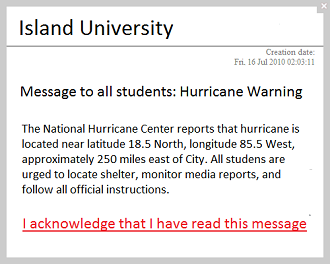Even the most established companies encounter business crises that can damage their reputation to the public, and their clients in particular. Perhaps the most recent example is Volkswagen, the iconic German automobile maker whose status was seriously damaged after it figured in an emissions scandal. The scandal not only cost the company billions in dollars, but also prompted the resignation of its president.
While you don’t want a crisis to hamper your company’s operations, it doesn’t mean that you should not prepare for it. A crisis communication campaign should be in your drawer, so to speak.
Aside from resolving whatever issue your company gets involved in, you also have to deal with your employees—and ensure that they are in the loop during a trying time in your firm’s history.
So what are the internal communication strategies you should be aware of during a business crisis? Hiring a PR consultant who can recommend internal communication strategies may help. But if hiring one isn’t possible yet, here are some of the things to keep in mind:
Internal PR Should Come First
Ideally, the employees should be the one to know about the crisis that the company is facing. Don’t let them hear negative news about your business from external sources, like their family members of friends. It would only alienate them, and prevent them from helping your firm hurdle the problem, so to speak.
Thus, one of the best internal communication strategies during a crisis is to launch an internal PR campaign first within the organization.
Before meeting the employees, your company should prepare first by identifying the goals of the internal PR campaign, its desired outcome, the specific groups of employees who will be communicated with, and who will initiate the communication.
Form the Crisis Communications Team
This will be a select group of officials, including you as the business owner, who will face the employees in a meeting to eradicate uncertainty among the workforce.
Ask someone in your organization to help you out in crafting three key messages to be delivered to the employees. Preferably, the person understands the crisis and its potential effects on your employees. The messages will explain what the crisis is all about, how it can affect the business, and how the company plans to resolve it.
The Dialogue
The meeting with the employees should be as honest as possible, so make sure that the officials will tell only factual information. An honest dialogue fosters better understanding and increases employee support for potentially unpopular but essential steps that management may have to resort to in order to resolve the crisis.
Employees will always have questions, so you or your team should anticipate and prepare for replies to those queries. Since the trust of your employees will hinge on your company’s ability to handle the crisis, you can anticipate that there will be some seemingly trivial questions or concerns that the employees will still ask.
In case the crisis can cause inconvenience to employees and their loved ones, your message should be one of regret and empathy. Moreover, it should also provide a clear explanation of what the company is doing to manage the situation and prevent recurrences.
Remember that whatever internal communication strategies you may try to adapt for your business in facing a crisis, nothing beats being upfront and honest with the employees. A better informed workforce will be more trusting and more importantly, supportive of the company during a difficult period. They will be willing to represent their company and supports its goals, particularly when it is facing some challenges.






